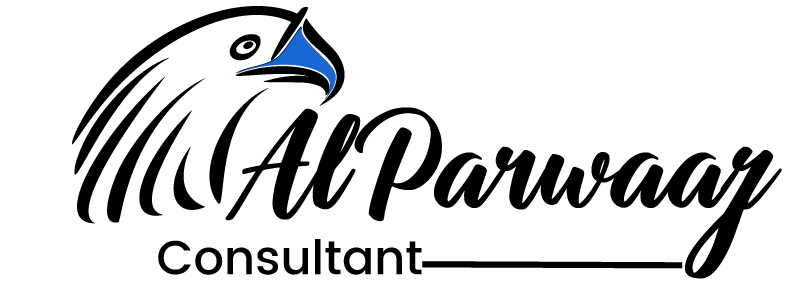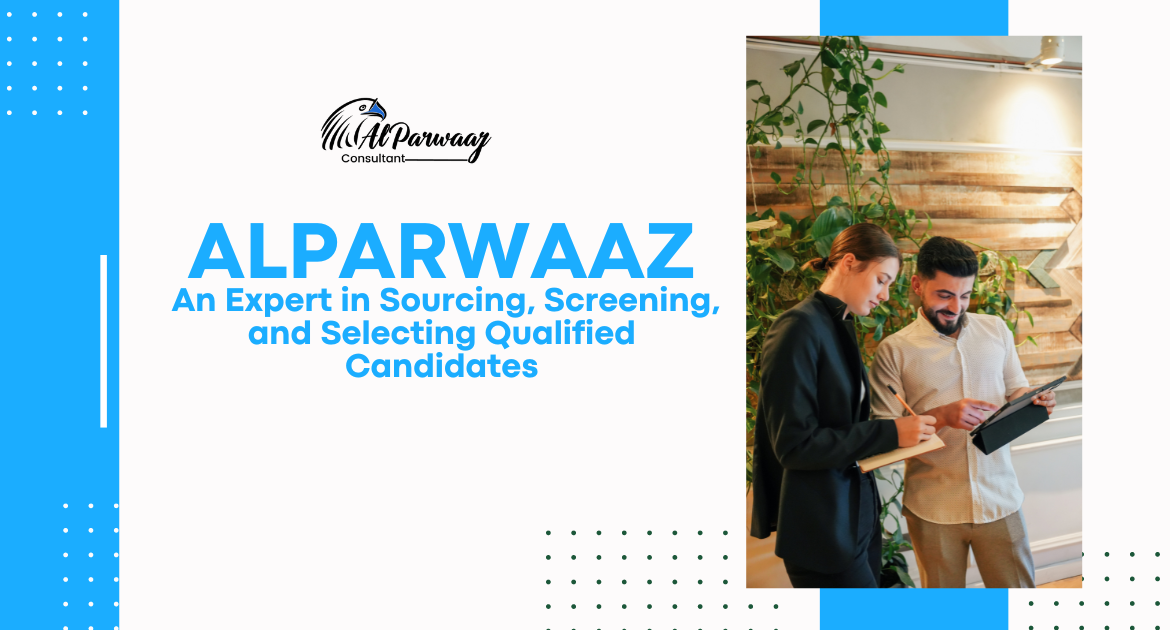Hiring the right talent with adequate experience, qualifications, and practical exposure is essential for businesses to grow steadily. It is very pivotal for an organization to begin the process of sourcing, screening, and selecting qualified candidates with the help of the best recruitment agencies to hire desired candidates in this competitive market.
Recruitment agencies cater to every problem in the hiring process, from the initial stage of sourcing the candidates to the final stage of onboarding. Alaprwaaz, a trusted name in the recruitment market landscape, helps candidates achieve their dream jobs but also leverages the vast talent pools and takes out the best talent for employers.In this illuminating blog, we will tour the expertise of Alparwaaz, the best HR consultancy in India, in sourcing, screening, and selecting qualified candidates for employers.
1. Why Candidate Screening is Essential?
Candidate screening is essential for any organization as it evaluates the applicant and determines suitability according to the particular job. This process involves the assessment of the qualifications, experiences, and skills of the candidates. Candidate screening is a necessary measure that is required to check the competency and fit of the candidate with the organization.
The candidate screening process is the foundation, ensuring that only qualified candidates proceed to the next step of hiring. This process also empowers employers to recognize skilled and experienced candidates who can simultaneously contribute to organizational goals and development and excel in their roles.
2. The Necessity of Comprehensive Job Descriptions
A well-curated job description outlines the job role, responsibilities, requirements, and qualifications expected from a candidate. A job description serves as a first filter, providing a clear understanding of the organization’s expectations from the candidates.
Contrarily, an inclusive job description also attracts suitable candidates with a perfect fit for the job. Providing brief information on the job title, description, responsibilities, educational qualifications, experience requirements, salary, and other benefits gives a clear idea to the candidates and streamlines the hiring process.
3. Finding Candidates and Utilizing Various Types of Sources
Finding candidates is the most daunting task of the recruitment process. To tackle this situation, recruitment agencies utilize job boards and various online platforms for sourcing candidates. This platform allows agencies to access larger talent pools from which employers can pick the best fit for their organization.
4. Interviews and Remote Analysis for Behavioral Assessment
It is necessary to assess the candidate’s soft skills, problem-solving abilities, and cultural fit by putting them through behavioral assessment by knowing their exact past situations and their take on them. Using this organized technique to evaluate candidates based on the same criteria is crucial to guaranteeing their honesty and integrity. Additionally, video interviews and remote assessments have become essential as they enable the candidates and the recruiters with more flexibility, lessening the need for interviews. For accessing the broader talent poll, using these virtual methods is significant, which impacts geographically remote teams and positions. At Alparwaaz – HR Consultant, we embrace these methods for effective recruitment and screening, contributing to the growing scenario of a remote assessment culture.
5. Pre-Employment Assessments for Technical and Job-Specific Skills
Assessing technical and job-specific skills through skill tests and work samples is crucial for roles requiring expertise. These assessments allow the candidates to prove and demonstrate their abilities in the real world, providing physical evidence of their skills and proficiency. Skill tests and work samples give a clear idea to the recruiters to evaluate the candidate’s performance. Because of these assessments in the hiring process, recruiters ensure that candidates’s actual skills match their resumes.
Whereas, assessing the personality, behavior, cognitive, and aptitude tests enables the recruiting agencies to identify the candidate’s traits, work preferences, and problem-solving skills, supporting the employers’ data-driven hiring decisions.
6. Evaluating Competency for an Organization Cultural Fit and Alignment
Competency-based assessments include defining core competencies essential for success in a job, such as teamwork, problem-solving, and communication, which align with organizational values and job requirements. Candidates are evaluated and scored based on their competency and proficiency, providing a comprehensive view of their strengths and weaknesses for fair and objective assessments. Evaluating cultural fit and organizational alignment focuses on assessing the candidate’s alignment with the company’s values, mission, and culture through behavioral interviews and situational tests. This approach also considers the candidate’s long-term fit and growth potential, aiming to build united teams that are motivated and aligned with the organization’s future needs.
7. Candidate References: A Crucial Aspect to Consider
Verifying the candidate’s qualifications and work experience is a crucial step in candidate references. Cross-checking with previous employers to get an insight into the candidate’s work ethic, previous performance, and team values is the mandatory step that every recruiter takes to ensure the candidate’s validity for the business. Recruitment agencies take this step seriously to cross-check the information given by the candidate. This step ensures that qualified candidates go further in the screening process and only top candidates with the skills and organization goals are presented to the employers.
8. Teaming Up to Make Decisions During the Hiring Process
The hiring process is a collaborative decision-making process, engaging various stakeholders such as hiring managers, team members, HR professionals, senior managers, and recruitment partners. This approach involves different perspectives, which reduces the chances of biased decisions by any team member at any point. These stakeholders have to be on the same page while selecting the candidate by discussing the qualifications, strengths, and ethics and then have to testify that all these factors align with the organizational goal. Transparent communication and exchanging feedback with the recruitment partner are the keys to hiring the best candidate for the business.
9. Stay Aware of the Pitfalls While Candidate Screening
The most common pitfall that can disturb the whole process is being biased and discriminating while screening. Avoiding bias and discrimination in candidate screening is crucial for fair hiring practices. Unconscious biases can unfairly impact decisions based on gender, race, age, or disability. To mitigate this, employers should use structured interviews, standardized assessments, and blind resume reviews, while also training HR professionals and hiring managers to recognize and address their biases. Balancing objectivity and subjectivity is also important; while objective assessments provide measurable data, subjective evaluations of cultural fit and team dynamics are essential. A comprehensive screening process should involve multiple stakeholders to ensure a balanced and holistic approach to candidate evaluation.
10. Adapt new Screening Techniques and Technological Advancement
Using applicant tracking systems (ATS) and AI-powered screening tools to enhance recruitment efficiency and streamline screening techniques with the technology. ATS automates candidate sourcing, screening, and communication, helping HR consultants organize and track applicant data in a centralized database. AI-powered tools leverage machine learning to evaluate qualifications and match candidates with different organizations’ job requirements. These technologies enable the recruiter to funnel out the candidates and empower the employers to focus on the most qualified candidates, improving the overall screening process efficiency. Investing in appropriate technology supports data-driven decisions and aligns with specific screening needs.
Conclusion
In conclusion, the recruitment process, particularly candidate screening, plays a pivotal role in securing qualified individuals who not only possess the requisite skills but also align with the organization’s culture and values. Alparwaaz, as a leading HR consultancy in India, demonstrates expertise in every aspect of sourcing, screening, and selecting candidates, ensuring a seamless process for employers. By embracing innovative screening techniques and leveraging technological advancements such as applicant tracking systems (ATS) and AI-powered tools, Alparwaaz consultancy exemplifies a commitment to efficient and effective recruitment practices, ultimately contributing to the success and growth of businesses in a competitive market landscape.





